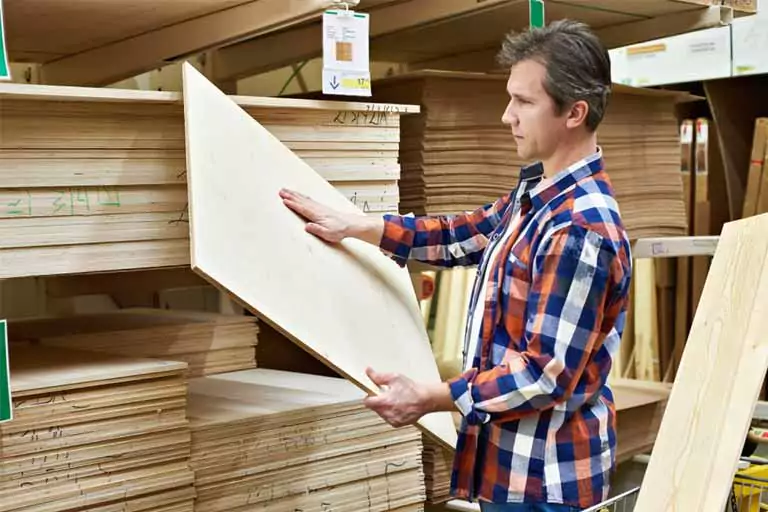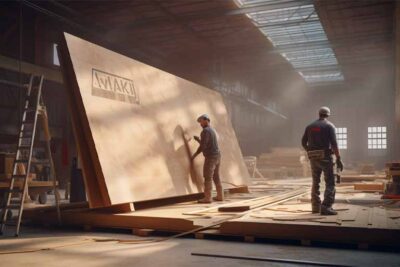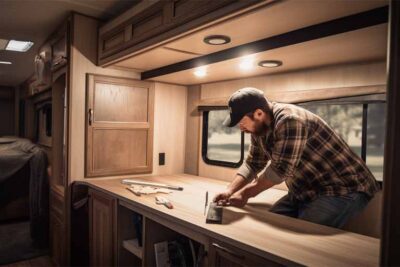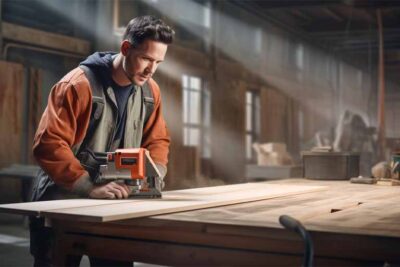
The Advantages of Plywood over Other Sheet Materials
The Advantages of Plywood over Other Sheet Materials
When it comes to construction and design projects, choosing the right sheet material is crucial. Among the various options available, plywood stands out for its numerous advantages and versatility. In this blog post, we will explore the key benefits of plywood over other sheet materials, shedding light on its strength, durability, cost-effectiveness, environmental sustainability, and wide range of applications. Let’s delve into why plywood is the go-to choice for builders, architects, and designers.
I. Strength and Durability
Plywood is not your ordinary sheet material. It consists of multiple layers of wood veneer stacked and bonded together. This layered structure gives plywood exceptional strength and durability, making it more robust compared to other sheet materials.
Whether it’s supporting heavy loads or withstanding constant use, plywood outperforms alternatives such as particleboard or medium-density fiberboard (MDF). Its cross-grain construction enhances strength, enabling plywood to withstand significant weight and pressure without compromising structural integrity.
One of the significant advantages of plywood is its resistance to warping and splitting. Thanks to its layered composition, plywood exhibits superior dimensional stability, minimizing the risk of warping or bowing over time. This stability ensures the longevity of structures and prevents costly repairs or replacements.
Plywood’s strength allows it to bear substantial loads without buckling. Whether used as flooring, decking, or structural components, plywood can handle the weight of heavy machinery, furniture, or equipment, making it an ideal choice for construction projects.
II. Versatility
Plywood comes in a wide array of sizes and thicknesses, offering flexibility to meet diverse project requirements. From thin and flexible plywood for intricate crafts to thicker panels for heavy-duty applications, there is a plywood variant suitable for every need.
One of the primary reasons plywood is favored in the construction and design industries is its versatility. It finds applications in furniture-making, cabinetry, flooring, walls, roofs, and more. Whether you’re working on a residential, commercial, or industrial project, plywood can adapt to various construction needs.
Plywood seamlessly integrates with different joinery techniques such as screws, nails, and adhesives. Its layered composition provides a solid grip, ensuring secure and stable connections. Whether you’re building cabinets, shelves, or framework, plywood’s compatibility with various joinery methods simplifies the construction process.
Plywood’s inherent flexibility makes it easy to customize according to specific project requirements. It can be easily cut, shaped, and formed into desired dimensions, allowing for intricate designs and precise installations. This adaptability empowers architects and designers to explore creative possibilities.
III. Cost-effectiveness
In terms of cost, plywood offers significant advantages over solid wood and other sheet materials. It provides a cost-effective alternative without compromising on quality or performance. Whether you’re working on a large-scale construction project or a small DIY endeavor, plywood proves to be a budget-friendly choice.
Investing in plywood pays off in the long run. Its durable composition ensures longevity, reducing the need for frequent repairs or replacements. By choosing plywood, you can save on maintenance costs and enjoy a long-lasting material that withstands the test of time.
Plywood manufacturing optimizes the use of wood resources, minimizing waste. The process involves assembling thin layers of veneer, utilizing more of the harvested logs. As a result, plywood production minimizes the environmental impact and promotes efficient resource utilization.
IV. Environmental Sustainability
At SFK Plywood, we prioritize sustainable sourcing practices. We ensure that the wood used in our plywood production comes from responsibly managed forests. By supporting sustainable forestry, we contribute to the preservation of natural habitats and the long-term health of our ecosystems.
Plywood boasts a relatively lower carbon footprint compared to alternative sheet materials. The manufacturing process requires less energy and emits fewer greenhouse gases. By choosing plywood, you contribute to mitigating climate change and fostering a greener future.
Plywood is a recyclable material. At the end of its lifespan, it can be repurposed, further reducing waste. Additionally, plywood’s durability allows for reuse in various applications, extending its functional life and minimizing environmental impact.
SFK Plywood’s products meet stringent green building certifications, ensuring compliance with sustainable construction practices. When you choose plywood for your projects, you align with environmentally conscious standards and contribute to the creation of healthier and more sustainable built environments.
V. Stability and Dimensional Accuracy
Plywood exhibits remarkable stability in the face of fluctuating temperature and humidity levels. Unlike solid wood, plywood’s layered structure minimizes expansion and contraction, maintaining its shape and dimensions over time. This stability ensures reliable performance, especially in areas prone to climate variations.
Due to its cross-laminated composition, plywood experiences minimal expansion and contraction when exposed to moisture or temperature changes. This property makes plywood an excellent choice for applications where dimensional accuracy is crucial, such as flooring or cabinetry.
Plywood’s ability to retain its structural integrity over extended periods makes it a preferred material for demanding applications. It resists warping, twisting, and sagging, ensuring the stability and safety of structures. Whether used in buildings, bridges, or furniture, plywood delivers reliability and longevity.
VI. Appearance and Aesthetics
Plywood offers a wide range of finishes and veneers, allowing you to achieve your desired aesthetic appeal. Whether you prefer a natural wood look or a specific color, there are countless options to enhance your project’s visual appeal.
The natural wood grain pattern visible in plywood adds a touch of elegance to any space. This unique characteristic gives plywood a distinct and authentic appearance, making it a popular choice for both contemporary and traditional designs.
Thanks to its versatility, plywood seamlessly fits into various design styles. Whether you’re aiming for a modern, minimalist look or a rustic, traditional ambiance, plywood offers design flexibility and versatility.
VII. Ease of Installation
One of the practical advantages of plywood is its lightweight nature, which makes it easy to handle and transport. Whether you’re a professional builder or a DIY enthusiast, working with plywood is convenient and hassle-free.
Plywood’s composition allows for effortless cutting and shaping using basic tools. Its consistent thickness and uniform structure ensure clean and precise cuts, saving time and effort during the installation process.
Plywood can be installed using various methods, depending on the project requirements. It can be nailed, screwed, glued, or even stapled, providing flexibility and adaptability to different construction techniques.
Plywood’s ease of use makes it an ideal choice for DIY projects. Whether you’re building shelves, tables, or small structures, plywood empowers homeowners and hobbyists to bring their creative ideas to life with minimal professional assistance.
VIII. Fire Resistance
Plywood possesses inherent fire-resistant properties, making it a safer option for construction. It has a natural ability to resist ignition, and in case of fire, it tends to char rather than collapse, providing valuable time for evacuation and fire suppression efforts.
Using plywood that meets fire safety regulations ensures compliance with building codes and regulations. It gives peace of mind, knowing that your structure is equipped with a material that contributes to fire resistance and enhances overall safety.
By incorporating fire-resistant plywood in your projects, you prioritize the safety of occupants and reduce the risk of fire-related incidents. It adds an extra layer of protection, enhancing the overall safety standards of your construction.
IX. Sound and Thermal Insulation
The layered structure of plywood provides excellent sound-dampening properties, making it an effective material for noise control. It reduces sound transmission, creating a quieter and more comfortable indoor environment.
Whether it’s for residential, commercial, or institutional buildings, plywood contributes to improved acoustic performance. It helps minimize sound reverberation, echo, and external noise intrusion, creating a conducive space for work, leisure, or relaxation.
Plywood exhibits thermal insulation properties, which contribute to energy efficiency in buildings. It acts as a barrier against heat transfer, reducing energy consumption for heating and cooling purposes. By incorporating plywood in your construction, you promote sustainability and cost savings.
X. Moisture Resistance
Plywood is manufactured using water-resistant adhesives, enhancing its resistance to moisture. This feature makes it suitable for applications in high humidity environments, such as kitchens, bathrooms, and outdoor structures.
Unlike some other sheet materials, plywood can withstand exposure to moisture without compromising its structural integrity. It resists swelling, warping, and delamination, making it a reliable choice for areas prone to humidity and moisture.
Plywood’s resistance to rot, mold, and insect damage adds to its durability and longevity. This feature makes it highly suitable for outdoor applications, such as decks, fences, and exterior cladding, where exposure to the elements is a concern.
XI. Structural Stability
Plywood’s strength and stability make it an excellent choice for load-bearing applications. Whether it’s for constructing walls, floors, or roofs, plywood provides reliable structural support, ensuring the integrity and safety of the building.
Compared to other sheet materials like particleboard or medium-density fiberboard (MDF), plywood exhibits superior strength and rigidity. Its cross-laminated construction enhances its load-carrying capacity, making it a preferred choice for demanding structural projects.
Engineers and construction professionals rely on plywood for its structural qualities. It meets the stringent requirements of construction projects, providing a reliable and efficient solution for a wide range of applications, from residential buildings to commercial complexes.
XII. Enhanced Screw Holding Capacity
Due to its layered structure, plywood offers enhanced screw holding capacity. The cross-grain orientation of each layer provides a strong grip for screws, ensuring secure and long-lasting fastenings. This feature is particularly advantageous for furniture assembly, cabinetry, and carpentry projects.
The improved screw holding capacity of plywood reduces the risk of fastener failure, such as screws loosening or pulling out. This added stability and reliability make plywood an excellent choice for projects that require robust connections and long-term durability.
Whether you’re building custom furniture pieces or engaging in intricate carpentry work, plywood’s superior screw holding capacity simplifies the assembly process. It ensures that joints remain strong and intact, resulting in well-constructed and sturdy furniture or woodworking projects.
XIII. Resistance to Chemicals
In certain applications where exposure to chemicals is a concern, plywood excels due to its resistance. It can withstand contact with various substances, including solvents, acids, alkalis, and household cleaning agents, without deteriorating or compromising its structural integrity.
The chemical resistance of plywood makes it a popular choice for laboratories, industrial facilities, and marine applications. It provides a reliable surface that can withstand the demands of these environments, ensuring durability and longevity.
XIV. Impact Resistance
Thanks to its layered construction, plywood has inherent impact resistance. It can absorb and distribute impact forces, reducing the risk of damage or deformation. This property is particularly valuable for flooring, doors, and exterior applications that may experience heavy use or potential impacts.
By using plywood in areas prone to impact or heavy traffic, you minimize the risk of visible damage, such as dents or cracks. Plywood’s ability to withstand impact enhances its overall durability, making it a reliable choice for demanding applications.
Plywood’s impact resistance makes it well-suited for flooring systems, as it can withstand the weight and impact of foot traffic. Additionally, plywood is an excellent choice for doors, where durability and resistance to knocks and impacts are crucial. Furthermore, in exterior applications, such as wall cladding or outdoor structures, plywood’s impact resistance ensures longevity and aesthetics.
XV. Availability and Accessibility
Plywood is readily available in the market, making it easy to source for your projects. Whether you’re a contractor, builder, or DIY enthusiast, you can easily find plywood of various types, grades, and sizes to suit your specific requirements.
SFK Plywood offers a wide range of plywood options, including different thicknesses, grades, and sizes. This variety allows you to select the most suitable plywood for your project, ensuring optimal performance and functionality.
As a leading plywood wholesale supplier, SFK Plywood ensures that its products are accessible to customers through an extensive network of local suppliers and home improvement stores. You can conveniently find SFK Plywood products near you, ensuring a smooth and efficient procurement process.
XVI. Comparisons with Other Sheet Materials
When comparing plywood to particleboard, plywood offers superior strength, durability, and resistance to moisture. Particleboard, on the other hand, is more susceptible to swelling and warping when exposed to moisture. Plywood’s layered construction and solid wood veneers make it a more reliable choice for structural applications.
While both plywood and MDF are engineered wood products, they have distinct differences. Plywood is stronger, more durable, and better suited for load-bearing applications. MDF, on the other hand, is denser and offers a smoother surface, making it ideal for interior finishing and furniture components where strength is less critical.
In the comparison between plywood and oriented strand board (OSB), plywood has a longer track record of proven performance and reliability. It exhibits superior dimensional stability, strength, and resistance to moisture compared to OSB. Plywood is often the preferred choice for applications where structural integrity is crucial.
In all the comparisons with other sheet materials, plywood consistently demonstrates its strengths and advantages. Its layered structure, strength, durability, moisture resistance, and versatility set it apart as a top choice for a wide range of applications, from construction to furniture making.
Plywood offers a multitude of advantages over other sheet materials. Its strength, durability, versatility, cost-effectiveness, and wide range of applications make it an exceptional choice for various construction and woodworking projects. From structural stability to fire resistance, plywood consistently delivers superior performance.
SFK Plywood is proud to provide top-quality plywood products that encompass all these advantages and more. As a leading plywood manufacturer and supplier, SFK Plywood understands the importance of reliable materials that meet industry standards and exceed customer expectations. With our range of plywood products, you can confidently undertake your projects, knowing that you’re utilizing a material that offers exceptional strength, versatility, cost-effectiveness, and environmental sustainability.
Whether you’re a professional builder, a DIY enthusiast, or an architect, consider SFK Plywood as your go-to source for high-quality plywood. Our commitment to excellence, combined with the advantages that plywood offers, ensures that your projects are built to last, perform admirably, and meet your design goals.
To learn more about our wide selection of plywood products, visit our website at www.sfkplywood.com or contact our sales team directly. Experience the advantages of plywood for yourself and take your projects to new heights with SFK Plywood.






